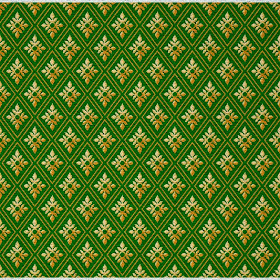The marble has finally arrived from Greece and Italy for the flooring, so I am looking forward to seeing it laid when I next go back in September. Now we are choosing carpets to match the hard flooring.
We have found a nice tufted cut pile carpet from a NZ company called Irvines. It is from their premium solution dyed nylon (PSDN) range. Now, I was raised to believe that the only acceptable carpets One could countenance having in One's home were 100% wool. But it appears that that idea is now completely on its head, with technology far eclipsing the sad and tragic range of harsh and scratchy artificial fibres that were on offer in the 1980s. Modern PSDN carpets are soft, stain proof, fade proof, hard wearing, and look good.
We also compared triexta/polyester carpets (such as Smartstrand made by Mohawk), which are incredibly popular, with PSDN and woolen carpets. When we went to one independent carpet company who sold all three we were shown a simulated 10 year wear test on woolen carpets vs polyester/triexta vs PSDN and there was no comparison, the PSDN was by far the best wearing.

Above: Willoughby 'helping' choose the floor coverings. Every time we put a carpet sample down on the floor he went and lay on it. I think he agreed in the end that the Westminster City Beige worked best for his fur tones (and was the one which worked best with the beige marble sample).
Above: Westminster City Beige PSDN carpet and the foyer marble sample. The photo below is the same carpet, but is more representative of the colour the carpet actually is.

It has been paired with the Westminster City Black carpet (above) which will provide a border trim to the rooms in the same way that the black marquina marble will form a trim for the beige travertine. The carpets and marbles including the borders will segue into each other as you transition from the foyer to the salon.
We are looking for a vivid crimson red for the dining room, to match the silk damask walls. We are undecided on a plain red, such as this PSDN carpet called "Grenadier Guards"...
or whether to go for a patterned red such as the Irvines pattern called Delvaux...
or this one called trellis...

The above 2 examples are of a printed nylon carpet, the benefit being the patterns are crisp on the carpet. A more traditional approach would be a woven pattern, such as these by Brintons...



we want to capture a certain look in the dining room carpet, the look created by the carpet in these photos...
Above: The dining room at Althorpe House
Below: The dining room at Broughton Hall

Above and Below: The dining room at Chatsworth House

Above and Below: Rooms at Lancaster House
Above and Below: The Dining Room at Buckingham Palace
Below: A still from a scene in Downton Abbey. I am not sure of the set location.

For the Billiard room we will chose a green carpet, either plain or patterned. It would be a traditional pattern, such as this...
Above: Brintons
Below: Irvines
or a tartan, which I really like the idea of, as the rest of the room's interior is designed with a Scottish highland flavour...

This pattern by Irvines is from the same range as the first tartan, but is somewhat less traditional!

It would be lovely to own a beautiful Aubusson carpet, such as the one at Chatsworth - worth about as much as our entire manor!...
Above and Below: Beautiful examples of the work of Craigie Stockwell who still make bespoke carpets. The carpet above is a reproduction Savonnerie carpet made for this room at Chatsworth. Below is a photograph of how they are manufactured on a broadloom by hand. Amazing!

In a small homage to this wonderful piece we have bought a small (8' x 5') modern Savonnerie rug for our Chatsworth suite:

Aubusson carpets and tapestries were at
their zenith in the 17th and 18th centuries. They were
based in Aubusson in the upper valley of Creuse in central France. The carpets
were essentially large scale hand knotted / loomed tapestries, which were up
against the royally privileged houses of Gobelins and Beauvais. Savonnerie
were the most prestigious knotted pile carpets made at this time, following
on from the legacy of Gobelins and Beauvais. The factory was founded out of a
previous soap factory, hence the name Savonnerie. Aubusson and Savonnierie carpets were
available to the nobility and wealthy, whereas the Gobelins and Beauvais houses
were employed solely by the king.
Below: Example of the hand knotting of a Savonnerie carpet
Here are some more examples of Aubusson and Savonnerie carpets to covet...
Below: More modest modern attempts...

Classic designs for carpets:






































Willoughby chose excellent floor coverings and great colour combinations. Even we humans also have to agree that the Westminster City Beige works well with the beige marble!
ReplyDeleteAnd here is a surprise (for me, at least). Adding to the Scottish highland flavour might work well. I thought the tartans would be too decorative, but the patterns are controlled and smart.